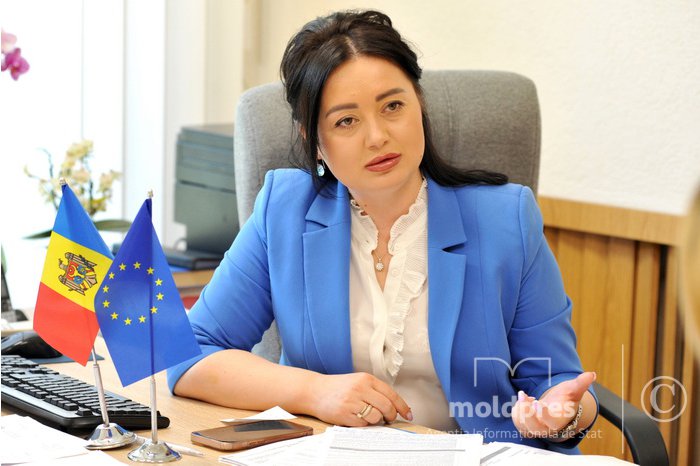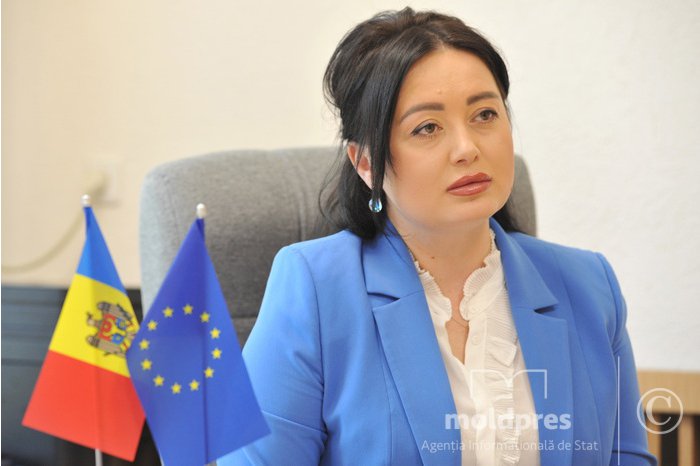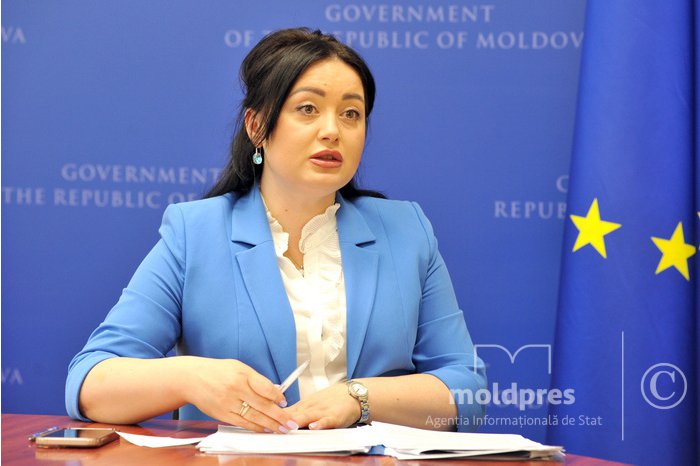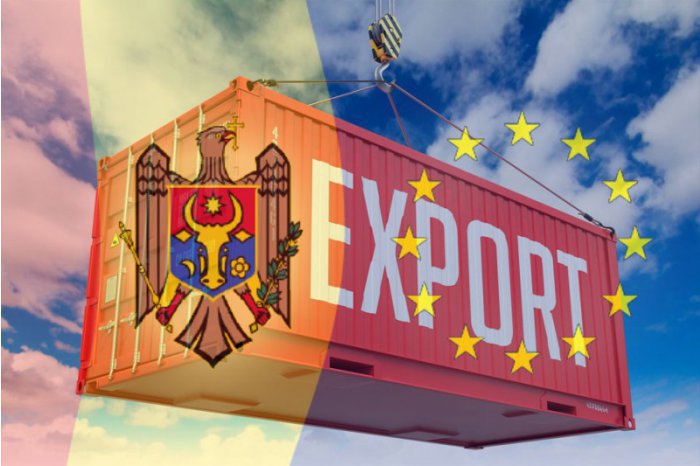MDED deputy secretary general: Moldova's accession to European Union means significant economic benefits
20:30 | 17.07.2024 Category: Interview, Event
Chisinau, July 17 /MOLDPRES/- Interview with Mihaela Gorban, deputy secretary general of the Ministry of Economic Development and Digitization for Moldpres News Agency.
The Ministry of Economic Development and Digitization plays a key role in Moldova's European path, managing nine out of 35 negotiation chapters with the European Union.
The Ministry's areas of competence are found in chapters covering fundamental economic issues, which include:
Economic Criteria;
Free movement of goods (Chapter 1);
Freedom to provide services (Chapter 3);
Company Law (Chapter 6);
Competition policy (Co-Chair, Chapter 8);
Information Society and Media (Chapter 10);
Enterprise and Industrial Policy (Chapter 20);
Consumer and Health Protection (Chapter 28);
External Relations (Chapter 30).
The Ministry of Economic Development and Digitization coordinates the work of Cluster 2 "Internal Market" and is also involved in the work of the other working groups for negotiations with the EU.
MOLDPRES: The Ministry of Economic Development and Digitization has successfully passed the first stage of Moldova's accession negotiations with the European Union, which took place between February and May this year. How did this process go?
Mihaela Gorban: MDED representatives have actively participated in the explanatory screening meetings, which took place from February to May 2024, the first stage of the negotiations on Moldova's accession to the European Union. In particular, questions related to the EU acts in the explanatory screening agendas in the areas under the Ministry's management were prepared and addressed to the European Commission. Throughout this process, Community legislation was explained to us, so that we could understand how the acquis is transposed and implemented into national legislation. In all this activity, it is worth mentioning the important role of civil society, academia and business, which showed a receptive attitude in the activities of the working groups.
MOLDPRES: As you mentioned, state institutions, and in particular the MDED to which we are referring, have entered the second stage of accession negotiations - bilateral screening. What does this stage entail and where are you focusing your efforts?
Mihaela Gorban: After the first Republic of Moldova - European Union Intergovernmental Conference on June 25, 2024, the second stage of the accession negotiations - the bilateral screening - has started, a process in which the level of alignment of national legislation with the EU acquis and its implementation capacity will be assessed.
The first exercise in the bilateral screening on which the Ministry is concerting its efforts as the coordinating institution is the Economic Criterion, which is part of Cluster 1 - Fundamental Values and is to be conducted this autumn. Here, we will present, in cooperation with other relevant authorities, a detailed analysis of the development of the main macroeconomic indicators, the planned reforms needed to achieve the set objectives in order to fulfill the Copenhagen economic criteria for accession. We also provide an outlook on economic forecasts up to 2030.
At the same time, it should be mentioned that MDED, as the coordinating institution for cluster 2 "Internal Market", which covers 9 chapters with the acquis communautaire related to the areas covered, is intensively preparing for the bilateral screening meetings, which will start starting this December.
MOLDPRES: Moldova's European integration, however, is a process that has been going on for several years. Certain actions have been taken in the past. At least in the last three years, we have seen an evolution in the situation in this area: the volume of exported products and investments is increasing, new categories of goods are appearing that can be exported to the EU market. Are there any mechanisms to support local producers?
Mihaela Gorban: Moldova's accession to the European Union means significant economic benefits. Moldova is already gradually integrating into European economic processes. An important step in this process is the accession to the Single Market Program, which will facilitate Moldova's access to the vast European market and boost trade and investment. We have also joined the Digital Europe Programme, which will help modernize the country's digital infrastructure and increase economic competitiveness.
The European Union is Moldova's main trading partner with a significant market share of 65.4% of total exports and 48.3% of total imports in 2023. This trend continues through 2024, demonstrating a robust and strengthened trade relationship. The number of companies еxporting to the EU is 1,825 in 2023, accounting for 76% of all exporting companies, indicating an increased interest in the European market. Thanks to the EU trade liberalization measure for the export of agricultural products to the European market, more and more products - our plums, grapes and cherries are reaching the EU citizens.
The Republic of Moldova has obtained the necessary EU approvals for the export of animal products, such as category A eggs, fresh and processed poultry meat. This will help align domestic producers to European standards to diversify and increase exports to the EU market.
In order to stimulate economic growth and the entrepreneurial environment by providing financial support for investment projects and business expansion, the Government Program 373, managed by the Entrepreneurship Development Organization, was launched. Moreover, specialized consultancy services are being developed for companies to guide them in adapting to European requirements and to support them in meeting quality and safety standards.
It is worth noting that the European Union is the largest investor in the Republic of Moldova. 81.5% of foreign direct investments in the economy come from the European Union (data from 2023). According to the data of the Public Service Agency of 2023, there are 4900 companies in our country with capital from EU member states, with a total investment value of 20 billion lei.
We will continue to attract investments and promote exports, thus, it is worth mentioning the approval of several important policy documents such as: the National Economic Development Strategy 2030; the Strategy for Digital Transformation of the Republic of Moldova for 2023-2030; the National Programme for Promoting Entrepreneurship and Increasing Competitiveness 2023-2027; the National Industrialization Programme for 2024-2028; the National Programme for Attracting Investments and Promoting Exports for 2024-2028.
MOLDPRES: The ministry's work also includes a component that is growing in importance every year - digitalization. How are things in this area and is Moldovan society ready to embrace this segment?
Mihaela Gorban: Digital transformation is of great importance, which is a catalyst for economic growth by increasing efficiency, transparency and accessibility in the relationship between citizens, businesses and public administration. In this chapter I want to mention that in 2023 only public services for entrepreneurs were monitored. In June 2023 the level of digitization of services for entrepreneurs G2B was 38%, today it is 59%, and for citizens G2C is 49%. Out of 48 institutions providing services, 13 have 100% digital status, the others exceed 50% digitization level. After the second quarterly report it is demonstrated that the digitization of public services is nevertheless welcome, as 76% of requests made for public services are online.
Also, an important achievement was the signing of the Voluntary Declaration on reducing roaming tariffs between the Republic of Moldova and the EU countries, according to the "roam like at home" principle.
MOLDPRES: If you have to make a conclusion, what are the Ministry's immediate next actions regarding European integration?
Mihaela Gorban: The Ministry is focusing its efforts on the implementation of the National Action Plan for Moldova's Accession to the European Union for 2024-2027, this action is mainly aimed at fulfilling the recommendations made in the 2023 Enlargement Package, implementing the provisions of Moldova-EU Association Agreement /DCFTA and aligning with the EU acquis, representing a crucial step on the path of the country's European integration.
In conclusion, I emphasize that the actions and reforms implemented by the Ministry bring the Republic of Moldova closer to the European Union, generating significant benefits for the business environment and citizens. The European agenda guiding the MDED's reforms and actions will facilitate Moldova's access to European funding which is important for modernizing vital sectors of the national economy.





